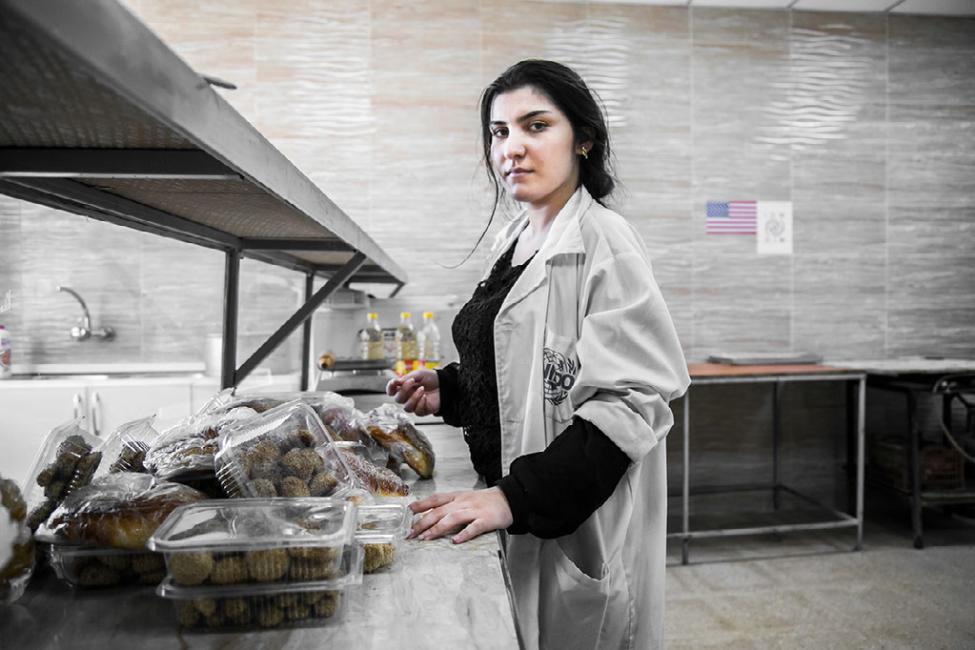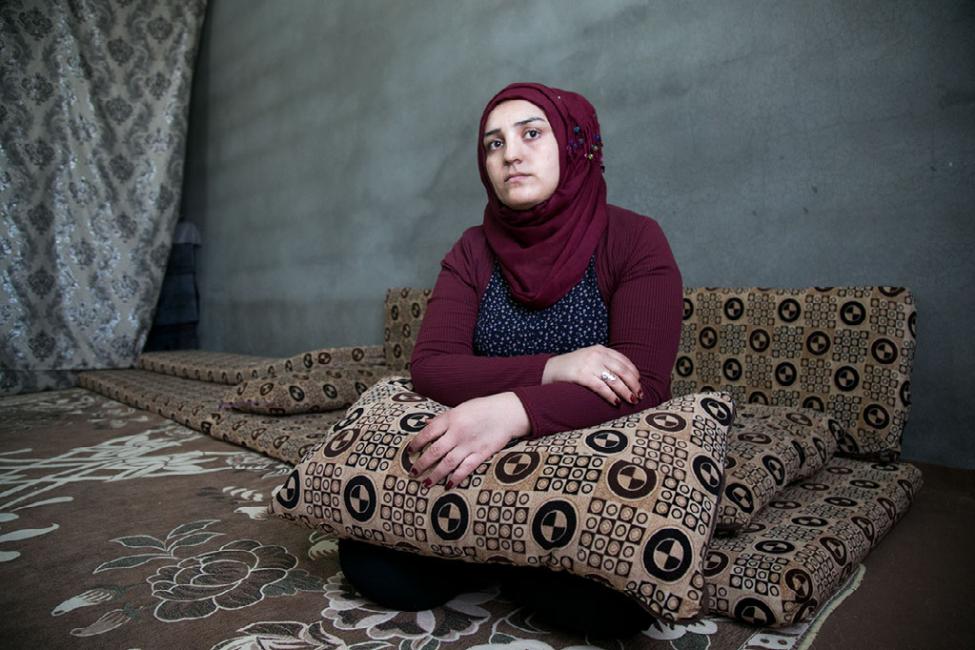-
Who We Are
WHO WE AREThe International Organization for Migration (IOM) is part of the United Nations System as the leading inter-governmental organization promoting since 1951 humane and orderly migration for the benefit of all, with 175 member states and a presence in over 100 countries. IOM has had a presence in Iraq since 2003.
About
About
IOM Global
IOM Global
-
Our Work
Our WorkAs the leading inter-governmental organization promoting since 1951 humane and orderly migration, IOM plays a key role to support the achievement of the 2030 Agenda through different areas of intervention that connect both humanitarian assistance and sustainable development. Across Iraq, IOM provides a comprehensive response to the humanitarian needs of migrants, internally displaced persons, returnees and host communities.
Cross-cutting (Global)
Cross-cutting (Global)
- Data and Resources
- Take Action
- 2030 Agenda
In the evening, Anwar, 49, and his family watch TV in their home in Darashkran refugee camp in northern Iraq, to check what is going on in Syria, their home. They eagerly look for a glimmer of hope pointing to an end to the prolonged conflict that has displaced millions within Syria and to neighboring countries, since 2011.
But to Anwar, nothing seems to indicate the end is near. “We do not know where the situation in Syria is headed. We have grown tired of it,” said Anwar, whose family of six is among the more than 200,000 Syrian refugees living in the Kurdistan Region of Iraq.
Anwar and his family, who fled from Qamishli, are trying to find a new dream to follow, as they rebuild their lives.
Many Syrian refugees integrated into communities in northern Iraq and found jobs or established their own businesses, aided by the fact that many speak Kurdish, like their host community, and share similiar culture, customs and traditions.
“We consider ourselves to be among family and friends here, especially because my family and friends are close to us in this camp or nearby. Many people think of migrating to Europe because they are in a critical financial situation; if they received support to start a business, or found a job, they would stay here,” Anwar concluded.
Anwar runs a bakery at Darashakran camp with the help of his two daughters, Robeen and Shireen. IOM assisted Anwar in establishing the bakery in June 2018 with funding provided by the U.S. Bureau of Population, Refugees and Migration (PRM). IOM’s partner, the United Nations Industrial Development Organization (UNIDO), provided equipment and business development training. Anwar has obtained a hygiene certificate from the Kurdistan Regional Government’s Directorate of Health (DoH), as well as a business license; he is already baking and selling his products.
“I want to establish my own bakery brand, such as the famous Abu Afif sweets in Erbil and Baghdad. I sell my products for 3,000 Iraqi Dinars per kilogram, which is almost half the price of what is found in the market in Erbil, because I want to be competitive to sell more and have people recognize and appreciate my products.”
Anwar’s family used to have a sweets business in Syria, with branches in Aleppo and Qamishli. They sold local types of sweets and cookies in the two cities and surrounding towns. When the conflict intensified, they left everything behind.
The father and daughters work from 9 to 5 in the bakery. When they are done, Anwar takes the products and distributes them to local vendors in the camp and nearby. “I do this for my children, so they can have a better life.”
Shireen and Robeen both receive a salary from their Dad for working in the factory. “It is not a lot, but it is good to work here, I love helping my father,” said Robeen. And while they help their Dad in the pursuit of his dream of establishing his brand, they also use their income to pursue their own dreams, after leaving Syria.
Shireen was in her senior year in high school when they fled Syria in 2012, and wanted to pursue a law degree in Damascus. But in Erbil, public schools teach in Kurdish, not Arabic, the language she was used to being taught in.
“I didn’t know what my options were, especially with the difficult financial situation we were facing. We couldn’t afford the transportation costs of going to an Arabic-speaking school. So, I gave up on my dream of becoming a lawyer,” Shireen says.
Shireen might have given up on one of her dreams, but she has found a new one. She wants to become a journalist.
“I am taking English language lessons and a journalism training course to learn the skills that will help me to become a journalist. I want to become a field reporter for a local TV channel here. I like to be active and am interested in covering current events. You must always have dreams, and if one dream does not work, you need to find another one that’s more realistic and more practical.”
And Anwar is behind her with full force.
“In our household I treat my children as my friends. This has made things easier for all of us. It has even made the work that we do here in this bakery easier. We work, we joke with each other, we laugh, we support each other. It is fun.”
Robeen has recently gone through a separation but she has made it her life’s goal to make sure that her three-and-a-half-year-old son Tirej grows up with the best education there is. That’s why she spends most of what she earns from the bakery business on her son’s wellbeing.
“I work hard just to make sure that he has everything he needs. I send him to a daycare so I can work here and he can learn languages and get a preschool education. I want him to have a good education. I don’t have any dreams for myself, all I think about is him,” said Robeen.












